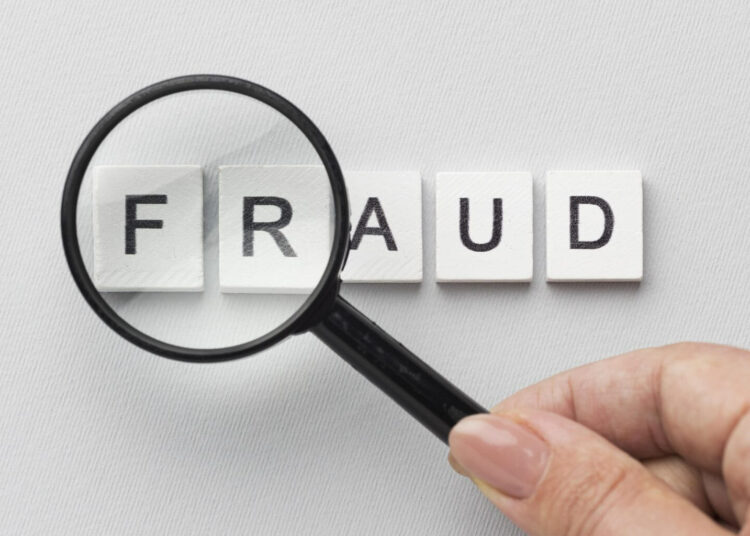Financial Fraud
Scammers are probably the most motivated individuals you would ever come across. Financial greed keeps their innovation levels so high that they always find new ways to scam organizations.
PwC’s research found 51% of businesses have faced financial fraud in the past two years. What’s more baffling is the figures are the highest in PwC’s 20 years of research. It shows the need to be alert to prevent financial losses.
But how do you get there? This guide helps you understand everything you need to know about financial fraud in business and ways to prevent them.
What Is Financial Fraud?
Financial fraud for businesses is an unethical, illegal, and deceptive activity that leads to asset and monetary losses. It can include several forms of theft, like false accounting, forgery, phishing, and embezzlement of funds. Anyone from individuals to businesses and even governmental bodies can commit financial fraud.
According to the US-based Association of Certified Fraud Examiners (ACFE), businesses can lose up to 5% of their revenue to financial fraud annually. The report also states small businesses and private companies are 42% more vulnerable to occupational fraud frequency than large corporations and government institutions.
The complex nature of such frauds in businesses makes them difficult to unravel. For example, it can often take months for forensic accountant teams to identify fraud and reach their grassroots levels.
Types of Businesses Liable for Financial Fraud
Here are the different businesses types and ways through which regulatory bodies allow to handle liability for financial fraud in the business.
1. Corporation
Incidences of fraud are common in the corporate sector despite abundant technology measures to safeguard financial assets. When unearthed, the company policies to deal with crime come into the picture before laws.
The person or group of people responsible for the scam usually find their employment terminated. The organization then resorts to legal action and identifies ways to get the stolen money.
2. Limited Liability Company (LLC)
Business owners and the company get treated as different entities in an LLC. The laws governing the recovery of liabilities and debts vary for these companies. For example, law agencies can recover liabilities from the company’s assets instead of the owner’s assets.
The responsibility still falls on the shoulders of owners who are held responsible for financial fraud in the business. In the case of two or more partners, only the guilty remain subjected to punishment.
3. Partnership
One of the common frauds here is tampering with agreements. One partner may lie about their experience and earnings. Furthermore, they may not reveal information that will likely harm the company’s prospects.
The end result of such incidents is the termination of the agreement immediately. The affected party may also file a lawsuit to take necessary action against the other partner.
4. Limited partnership
A limited partnership is either general or limited. In a general partnership setup, the partners are the sole decision-makers. When we look at a limited partnership arrangement, the role partner’s role is only about their liability towards their investment and voting rights.
If such partners engage in fraudulent activities, the law takes its course and holds them accountable. There can be fines, imprisonments, and even closure of the firm.
5. Sole partnership
A sole partnership involves only one individual responsible for the company’s finances and business activities. The individual is not answerable to anyone as there are no partners or agreements to deal with.
Such business owners can often resort to practices like tax evasion, which can prove costly. Law agencies can penalize such owners, sentence them to prison, and even order to shut down the business.
Also, Read: Travel Policy for Employees in India
10 Common Types of Financial Frauds and Prevention
As a business owner, you need to be aware of different types of financial fraud to safeguard your assets.
Here are the 10 common examples of financial fraud and tips on how to protect yourself.
- Expense Fraud
- Identity Theft
- Investment Fraud
- Credit Card Fraud
- Mortgage and Lending Fraud
- Tax Refund Fraud
- Payroll Fraud
- Asset Misappropriation Fraud
- Invoice Fraud
- Financial Statement Fraud
1. Expense Fraud
Expense fraud involves intentionally submitting false or inflated expense reports to receive reimbursement from an employer for personal expenses. It includes claiming reimbursement for expenses not actually incurred. Furthermore, employees can also inflate the cost of legitimate expenses to receive a larger reimbursement.
How to prevent: It is best to implement clear expense policies and procedures, conduct regular audits, use technology to automate expense reporting, provide employee training, and establish a confidential reporting system.
Read More: Prevent Expense Fraud
2. Identity Theft
Identity theft occurs when someone uses your financial information, such as your name, Social Security number, credit card number, bank account number, or bank statements, without permission to commit fraud or other crimes.
Some examples of identity theft include:
- Applying for credit cards or loans in your name
- Charging items to your credit card or debit card
- Opening a new bank account in your name
- Filing for bankruptcy under your name
How to prevent: Identity theft can ruin your credit and cause you a lot of financial stress. Your business can report this crime by filing an identity fraud report with law enforcement agencies.
3. Investment Fraud
Investment fraudsters often use high-pressure sales tactics and make false promises about the potential profits of their investments. They may also give false information about the risks involved.
Some examples of investment fraud include:
- Ponzi and fraud schemes
- High-yield investment programs
- Advance fee fraud
How to prevent: This financial crime may risk the business’s hard-earned money and reputation in the market. So, organizations should be cautious while choosing an investment plan and must do complete research about it.
4. Credit Card Fraud
Credit card fraud occurs when someone uses your credit card without permission to make purchases or withdraw cash. This fraud can be very costly and damage your credit score. This happens when business owners give their sensitive information related to a credit card to someone they think is a legitimate business, but it turns out to be a fraudster.
Warning signs for credit card fraud are:
- Receiving new credit cards statements for purchases you did not make
- Receiving calls or emails from businesses about suspicious activity on your account
- Seeing charges on your credit card that you do not recognize
How to prevent: To avoid this fraud, it is essential only to give your credit card information to trusted businesses. You should also regularly check your credit card statements to ensure no unauthorized charges.
Quick Read: Corporate Credit Card
5. Mortgage and Lending Fraud
Businesses with a lot of cash flow can be a target for mortgage and lending fraud. Fraudsters use false information to get a loan or line of credit. Furthermore, they may use fake documents or inflated income statements to get the loan.
Warning signs for mortgage and lending fraud include:
- Receiving calls or emails from companies that you did not contact
- Being asked to pay upfront fees for loan modification services
- Being told that you do not need to provide financial information
How to prevent: It is essential to only deal with reputable companies to avoid mortgage and lending fraud. It would be best to give out your personal financial information carefully. For businesses that have been victims, it is essential to report fraud to relevant authorities. This will help authorities investigate the crime and potentially catch the perpetrators.
6. Tax Refund Fraud
It is common for companies to become a victim of tax refund fraud. This happens when someone files a false tax return in your company’s name and claims a refund. The IRS may send the refund to the fraudster’s address instead of your company’s.
How to prevent: Identity thieves often commit tax refund fraud. They may use your company’s information to file a false return and claim a refund. Keeping your company’s information safe and secure is essential to avoiding fraud. You should also regularly check your tax returns to ensure no suspicious activity.
7. Payroll Fraud
Employees often steal money from their employer through the payroll system in payroll fraud. It includes altering productivity and attendance records to increase the amount of money an employee receives. Payroll fraud can be difficult to identify and prevent. However, you can take measures to reduce the risk of it occurring.
How to prevent: Your business should conduct regular audits, implement internal controls, and provide employee training to prevent payroll fraud cases. An automated payroll process also reduces the risk of fraud by providing greater visibility and control over the payroll system.
Quick Read: A Guide to Payroll Accounting
8. Asset Misappropriation Fraud
Asset misappropriation involves the unauthorized use of a company’s assets for personal gain. It includes employees stealing money or company supplies for personal use. Businesses should take the following steps to reduce the risk of it occurring.
How to prevent: These include implementing internal controls to prevent unauthorized asset access and conducting regular audits to identify inconsistencies. Technology can also help automate asset management processes for authentication and better visibility into assets.
9. Invoice Fraud
Invoice fraudsters create fake invoices or alter legitimate ones to steal money from a company. Members of the accounts and finance departments may conduct invoice fraud. They may create fake invoices for services or goods never purchased or alter the amount or details on a legitimate invoice to receive a larger payment.
How to prevent: Businesses should implement clear invoicing policies and procedures and periodically review and audit invoices to identify irregularities. Furthermore, automated invoicing software makes it easier to identify and prevent fraud cases.
Quick Read: Invoice Management
10. Financial Statement Fraud
It is the practice of intentionally misrepresenting the company’s financial performance or position in its financial statements. Some common examples include overstating revenue or understating expenses to show the company is more profitable than it is.
How to prevent: It is best to examine financial statements closely for inconsistencies before publishing them. Furthermore, be wary of the people you appoint for such work.
How Financial Fraud Affects Businesses?
Financial fraud can have a number of negative effects on businesses, including the following:
1. Loss of Money
It can result in the loss of money for a business, either through the theft of assets, withdrawals of money, or through the payment of false or inflated invoices.
2. Damage to Reputation
It can damage a business’s reputation with customers and stakeholders, such as investors and regulators.
3. Legal and Regulatory Issues
It can lead to legal and regulatory issues for a business, such as investigations and fines from law enforcement or regulatory agencies.
4. Loss of Trust
It can erode trust in a business among employees and other stakeholders, which can have long-term negative effects on the company’s operations and performance.
5. Decreased Morale
It can lead to decreased morale among employees, which can affect the overall productivity and performance of the business.
Also, Read: What is Embedded Finance?
How and Where to Report Financial Fraud?
Here’s an overview of how to report financial fraud in the US.
- Gather all the relevant information and documents about the fraud.
- Contact your local Federal Bureau of Investigation (FBI) office, the U.S. Securities and Exchange Commission (SEC), or even the Federal Trade Commission (FTC).
- Protect your business’s identity and financial accounts by blocking them.
- Look for your insurance coverage and financial recovery means.
Here’s an overview of how to report financial fraud in India.
- Gather all the relevant information and documents about the fraud.
- Contact your local bank and police authorities to file a financial fraud report.
- Protect your business’s identity and financial accounts by blocking them.
- Look for your insurance coverage and financial recovery means.
Protect Your Business from Financial Fraud
Financial fraud can have serious consequences for your business. It includes financial losses, damage to reputation, and legal problems. It is thus vital for your business to take the necessary steps to protect from financial fraud and minimize the risk of these consequences.
Let’s look at how you can minimize and overcome the risks of financial fraud.
Fraud Risk Protection Tips
Here are some tips to protect your business from financial fraud.
- Safeguard your bank accounts.
- Protect your computer systems.
- Hire employees after thorough background checks.
- Enable privileged access to sensitive areas.
- Introduce security systems everywhere, including at entry and exit points.
- Have adequate insurance to cover your business in case of adversities.
Try Happay To Prevent Your Financial Fraud
FAQ’s
1. What is the difference between fraud and financial crime?
Fraud is a financial crime involving deceiving someone to gain a financial advantage. On the other hand, financial crimes encompass a more comprehensive range of illegal activities committed for financial gain.
2. What is meant by financial crime?
Financial crime is any illegal activity committed to gain a financial advantage. This can include money laundering, embezzlement, fraud, and more. Businesses and individuals can be victims of financial crimes.
3. Is fraud a financial crime?
Yes, fraud is a type of financial crime. Many people argue that it is the most common type of financial crime. Individuals or businesses can commit financial crimes and have devastating consequences.
4. Is financial fraud a felony?
In most cases, yes. Financial fraud is a felony offense, which can result in prison time and significant fines. The consequences of a conviction will depend on the severity of the offense and the jurisdiction in which it is prosecuted.







